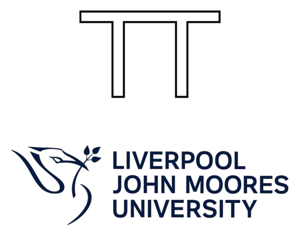Transart seeks more involvement from the fields of architecture, urbanism, and design to meet the interests of current applicants and to diversify our areas of research. This call is for proposals to teach intensive sessions and for new advisors to join our doctoral studies pool.
Call for Proposals
We have one weekend in our current translocal series of intensives set aside for proposals expressly for this call. Additionally in 2021 we will offer a new year long translocal intensive series and workshops in-person summer intensive in Liverpool.
The last weekend of every month we will hold a topic-based weekend intensive with our PhD students and a public series of talks connected to the workshop topics. For this current series we are open and especially interested in proposals that expand what can be done to further the video conference format and it is encouraged to propose weekend curated sessions which expand translocality.
You can find examples in the current program: https://transartinstitute.org/intensives-20-21
We are excited to start these weekends with spatial, sound and somatic sessions to transition into the weekend intensive workshops. As choreographer and TT instructor Kate Hilliard describes in her session, “With the Body”:
“It’s apparent that we are with ourselves more than ever. The absence of togetherness and our social pause means that our body matter is more often acknowledged on screen than in the flesh—this creates disparate understandings of the pace of our lives. Digital communication can leave one feeling fragmented. To overcome our new pixelated identity, we need to sigh, see, hold, take in air, and trace with our tongues.”
On the translocal front, Yuen Fong Ling has invited PhD students from Sheffield University to participate in a workshop with our students entitled: “The Human Memorial.”
And embracing the invitation extended to faculty to curate their own sessions and invite guests local to them in terms of place or field, Geoff Cox is offering a weekend on “Aesthetic Programming” with Winnie Soon and Dean Kenning.
Call for Advisors
In terms of advisement, we maintain a pool of accepted advisors. Applicants initially send an expression of interest (EOI) and advisors are invited to review student proposals and connect with applicant research which interests them and applicants are invited to do the same. Transart advisors may and do co-advisements. Our partner institution Liverpool John Moores University (LJMU) provides a chair or lead advisor completing the panel. All administrative responsibilities lie with the chair advisor. TT advisors give academic and creative input only. Panels meet monthly whenever and wherever the group decides. Students keep a process blog so you can review their progress in the interim. Advisors are encouraged to come to one of the live summer intensives at least once during the student’s three year trajectory and to offer a workshop or event and talk if they do so. You can see our current advisors and students here: https://www.transartinstitute.org/people-all
About Transart
Transart Institute is a space for experimentation and thinking in any form; for sharing and connecting; and offering practice-based doctoral studies in a low-residency model. We champion self-directed, curious, flexible and independent-minded creative researchers working solo and/or collectively.
Our border-free platform attracts an eclectic international body of students and advisors from equally diverse artistic and academic contexts and geographic locations as part of a global, transdisciplinary research community; creating opportunities to expand, enhance and sustain individual and collective practices in the world, beyond the walls of the academy.
We support research on themes in all creative genres including: art and social technologies; curatorial practices; cultural engagement through food; docufiction and creative writing; ecology and environmental activism; expanded studio practices; experimental pedagogies; fashion and textiles; foreignness, otherness; home, nostalgia and the uncanny; international diaspora and exiled states; language and image; liminal states, interstices, and spacetime; media and design; memory, forgetting, trauma and the archive; movement, dance, choreography; new materialism, object-oriented ontology; olfactory arts; peace, mediation and performative activism; post-nationalism, post-colonialism; publishing as an art practice; robotics; sound, music, field recordings, composing; space and temporary architecture; walking as an art practice.










